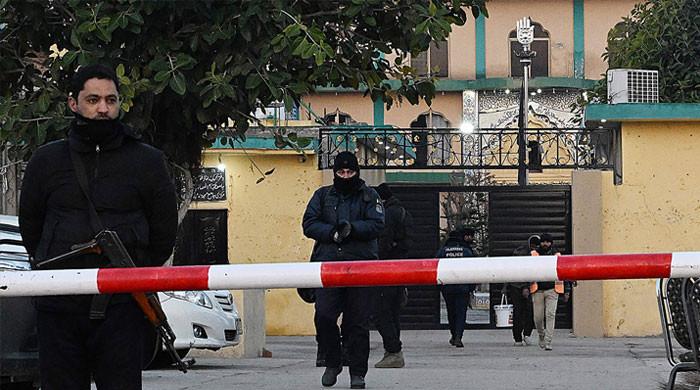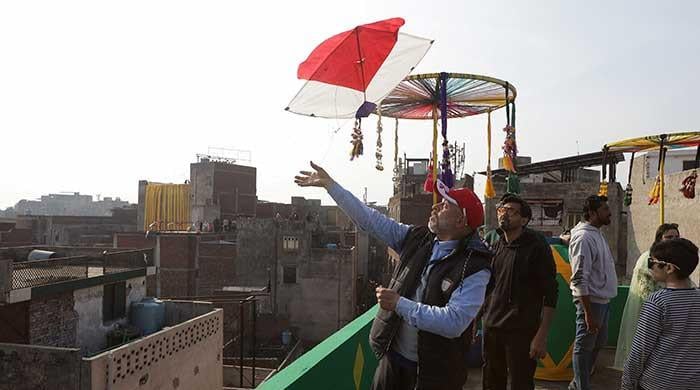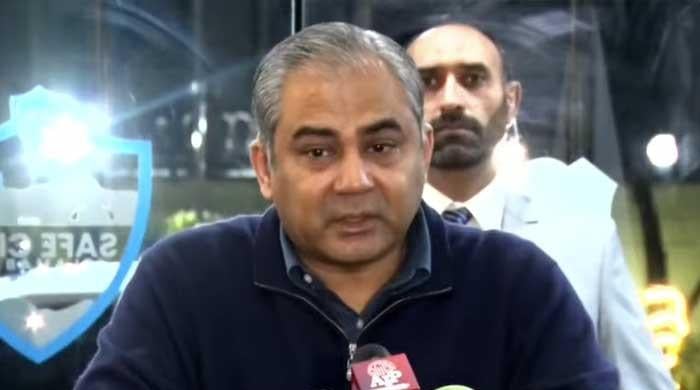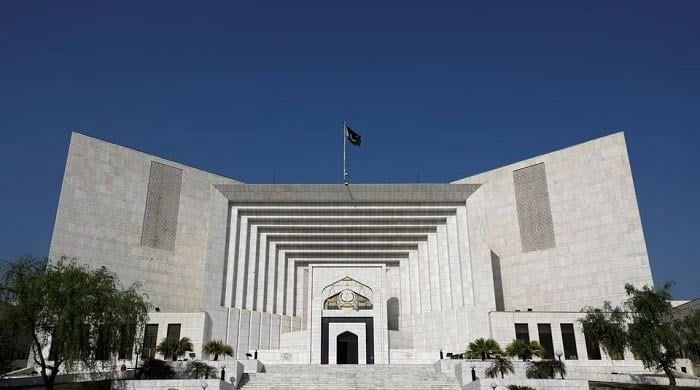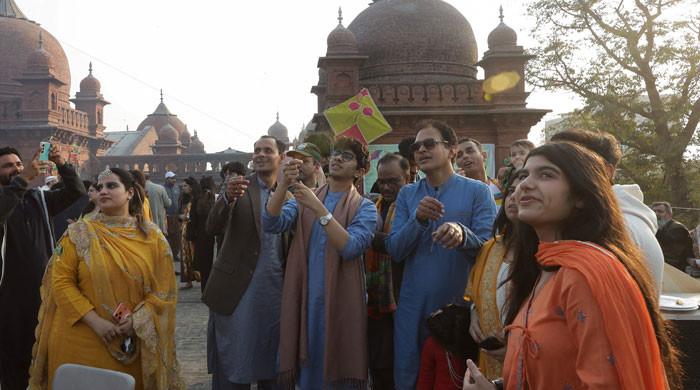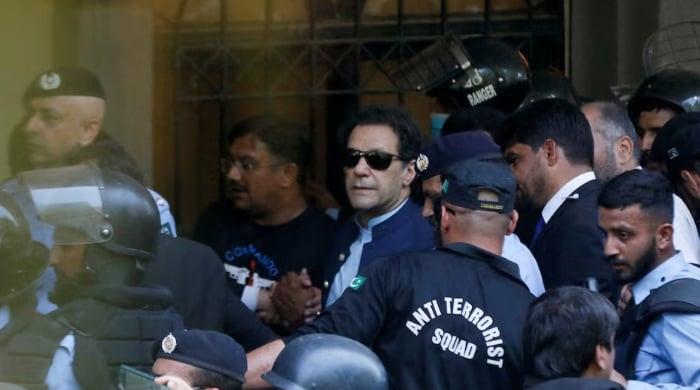Justice Mazahar Ali Naqvi guilty of misconduct: SJC
Supreme Judicial Council opines former judge "should have been removed from the office of Judge"
March 07, 2024
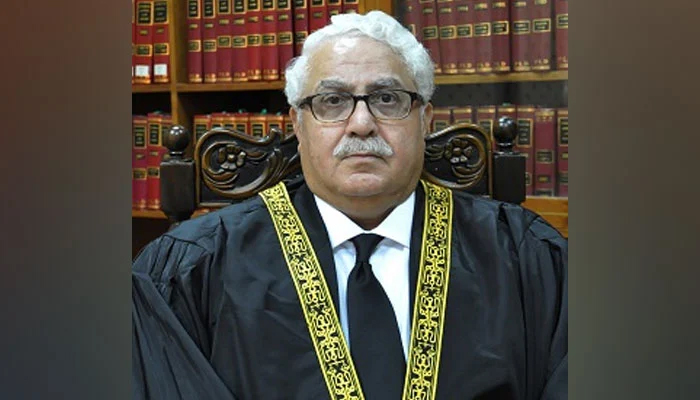
- Justice (retd) Naqvi stepped down following misconduct allegations.
- SJC considered six different complaints in chronological order.
- If a reply is issued by judge it does not violate Article V: SJC.
ISLAMABAD: The Supreme Judicial Council (SJC) Thursday held that controversial Supreme Court Justice (retd) Mazahar Ali Akbar Naqvi was guilty of misconduct, suggesting that he should have been fired before his resignation.
In a short statement on Thursday, the top judicial body opined that the ex-judge — facing several allegations — was guilty of misconduct and "should have been removed from the office of Judge".
In a surprise move in January this year, Justice (retd) Naqvi had stepped down from his post following misconduct allegations — and within a day, Justice (retd) Ijazul Ahsan also resigned, raising questions over their untimely departure.
In his resignation letter, the former judge had said: "[...] in the circumstances which are a matter of public knowledge and to some extent public record, it is no longer possible for me to continue to serve as a Judge of the Supreme Court of Pakistan. Considerations of due process also compel so.”
The SJC Friday reserved its opinion after completing the misconduct proceedings against its former judge Mazahar Ali Akbar Naqvi.
The council, headed by Chief Justice of Pakistan Qazi Faez Isa and comprising Justice Sardar Tariq Masood, Justice Syed Mansoor Ali Shah, Chief Justice Balochistan High Court Justice Naeem Akhtar Afghan, and Chief Justice Lahore High Court Justice Amir Bhatti, conducted the proceedings.
In the statement today, the top judicial forum said SJC considered six different complaints, in chronological order, and in respect of five the opinions expressed by the members to whom it was referred, recommended that there was no substance therein, with which the SJC concurred.
"However, in respect of complaints submitted against a Judge of the High Court of Balochistan the SJC issued notice to submit his reply /explanation within fourteen days," it added.
Regarding Navi, the SJC rendered its opinion in respect of the nine complaints against the former judge under Article 209(6) of the Constitution and "opined that he was guilty of misconduct and should have been removed from the office of Judge".
The development comes following the Supreme Court's last month's verdict that the proceedings against a judge by the SJC will not stop even after his resignation or retirement.
Naqvi to challenge opinion
In response, Naqvi, as per sources, vowed to challenge the top body’s opinion, stating that it was a “one-sided proceeding” and he had refused to become part of it.
“The law does not allow to carry out proceedings against a judge once they have retired,” the former judge said, explaining that the president had already accepted his resignation, which was also published in the gazette.
“How can the judicial council convert [my] resignation into removal from office? Many council members had demanded premature action against me even before the filing of complaints.”
Naqvi, the sources said, demanded to see the evidence against him, asking how was he guilty of misconduct. “Where is the evidence of me misusing my office?”
He claimed that it is part of the record that witnesses’ statements in the SJC’s proceedings were in “my favour”.
“I will challenge this decision and expose all the characters. I will approach the relevant legal forums and also inform the media.”
Article V amended
The SJC said it also approved amendments to Article V of the SJC that deals with the code of conduct of the judges, as per the statement.
In the SJC's meetings on February 29 and March 1st, the council members opined that if a judge responds to allegations or issues clarification it does not violate the body's Article V.
"Allegations are levelled against Judges of the Supreme Court and High Courts and the same are publicized
A number of Judges have expressed concern that if they respond to such allegations the same may be construed as misconduct because the Code of Conduct, dated 2 September 2009 issued by the Supreme Judicial Council, in its Article V, states that a Judge should not seek publicity," read the SJC statement.
The top judicial forum deliberated upon the matter and was of the opinion that if a reply or clarification is issued by or on behalf of a Judge it does not violate Article V, it added.
However, the SJC said since concerns have been expressed by judges it was agreed to amend Article V to add that if an allegation is publicised against a judge he may respond to it.
The amended Article V reads as: "[...] functioning as he does in full view of the public, a Judge gets thereby all the publicity that is good for him. He should not seek more. In particular, he should not engage in any public controversy, least of all on a political question, notwithstanding that it involves a question of law."




